Climate change is all about ‘power’

The use of fossil fuels and subsequent greenhouse gas (GHG) emissions worldwide are growing at an alarming pace, even though the use of renewables like solar energy and wind power has expanded exponentially. Unfortunately, it has not been enough to offset the increased use of fossil fuels. Adding to our discomfort, the carbon dioxide that causes most global warming remains in the atmosphere for more than a century.
Instead of effectively tackling the issues related to climate change, world leaders have politicised it over the last 30 years. Some mocked climate change as a "Chinese hoax," some believe it is not anthropogenic, while others talk and act as if climate change will follow whatever is agreed upon by them at various conferences. Many also suggest that climate change is just part of the natural cycle, or climate models are unreliable, or climate scientists are manipulating the data. And members of the former US President Donald Trump's environmental team shamelessly described climate change as a "niche" issue in the press.
We don't have to be climate scientists to know that the Earth is inexorably warming, and humans are causing it. We also know that Earth's climate system is highly complex, and complex systems do not respond to the whims of deniers. For those of us worried about climate change, the evidence is right in front of us – from record-breaking heat waves to increasingly extreme weather events.
Why do world leaders deny the evidence, even though climate scientists have made it clear that we are running out of time to avoid the most severe impacts of climate change? There are many complex reasons why they are not swayed by anything so prosaic as scientific facts. More importantly, they deny climate change because of their unholy alliance with the fossil fuel industry.
Documents prepared by the American Petroleum Institute (API), a trade organisation for the oil and gas industry, which were leaked in 1998, described the institute's plan to boost uncertainty about climate change. The documents describe strategy and plan of action so that "victory will be achieved when recognition of uncertainties [about climate science] becomes part of the conventional wisdom." The climate change deniers quickly adopted the strategy of sowing uncertainty and doubt as its preferred game plan for promoting distrust among people.
In 2003, a study published by Willie Soon, an astrophysicist affiliated with the Harvard-Smithsonian Center for Astrophysics, suggested that climate change is driven by the Sun, a theory that most climate scientists immediately dismissed as hogwash. Unsurprisingly, the study was funded by the API.
Disagreements on climate science often are not really about climate. They are about how politicians interpret scientific results. The interpretation depends on whether the results support policies that bolster or undermine their political philosophies, religious beliefs and ties to the industries that are the biggest sources of planet-warming emissions. Additionally, the deniers are reluctant to accept the scientific consensus because of the "echo chamber" effect – a situation where people surround themselves with information they want to hear and block out the rest. Their preferred source of information is conservative media outlets that debunk science, spread lies and promote pseudoscience through sound bites, editorials, social media, and other forums.
That being said, fissures span across every dimension of the climate change debate, especially the deniers questioning the motivations that drive climate scientists to conduct their research. In other words, polarised views about climate issues stretch from the causes and cures for climate change to mistrust in climate scientists and their findings.

There are also major divides in the way partisans interpret the current scientific discussions over climate change, with the political left and political right having vastly divergent perceptions of scientific consensus, differing levels of trust in the information they get from researchers, and different views as to whether it is the quest for knowledge or the quest for professional advancement that drives climate scientists in their work. This conflict gave rise to two groups: reactionaries led by the deniers, and progressives comprising the believers.
To the reactionaries, "climate change" is a highly charged term. Preferring to call it "extreme weather," they tend to push any action on climate change under the rug by putting up "strong national defence" arguments or "bad for business" alibis, or claim that "freedom and free markets are under attack." Besides, research on climate change is one of their favoured targets for defunding. Their policies, shaped by money from the fossil fuel industries, will arguably bring rational thinking, liberalism and globalism to a screeching halt.
The progressives, such as the Greens, on the other hand, believe that finding ways around the obstacles created by the reactionaries is key to working towards any climate solution. To that end, they tried to convince the deniers that climate change is not a "right-wing issue or a left-wing issue; it is an everyone issue." Since they could not get the deniers onboard with this argument, they are now advocating bypassing failed political discourse and addressing the issue at the grassroots level – communities and neighbourhoods, in particular. Moreover, they want to be aggressive enough to bring about a rapid phase of global decarbonisation combined with generously funded technological and ecological innovations, be it nuclear fusion, nanotubes, geoengineering or otherwise.
Who wins the fight against climate change will in large part depend on whoever has the greater political will as well as the power to transform that will into effective actions. However, it will be extremely difficult for the progressives to win as long as so many world leaders put their political ambitions ahead of human-induced climate change. Sadly, their dereliction will be the legacy they will leave behind for the future generations.
Finally, climate change has clearly become a game of political power. To save our crippled planet from the clutches of these politicians, we should use our power to shut down their power by voting them out of office. They are more of a threat to the planet than climate change is. Now is the time for action to make the colour of our planet green.
Dr Quamrul Haider is a professor of physics at Fordham University in New York, US.
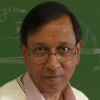
 For all latest news, follow The Daily Star's Google News channel.
For all latest news, follow The Daily Star's Google News channel. 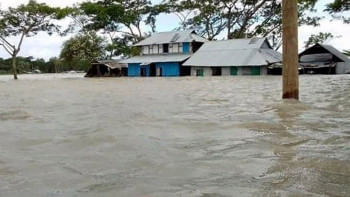

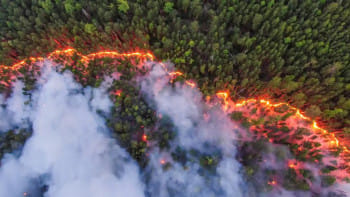



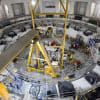
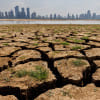

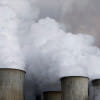


Comments